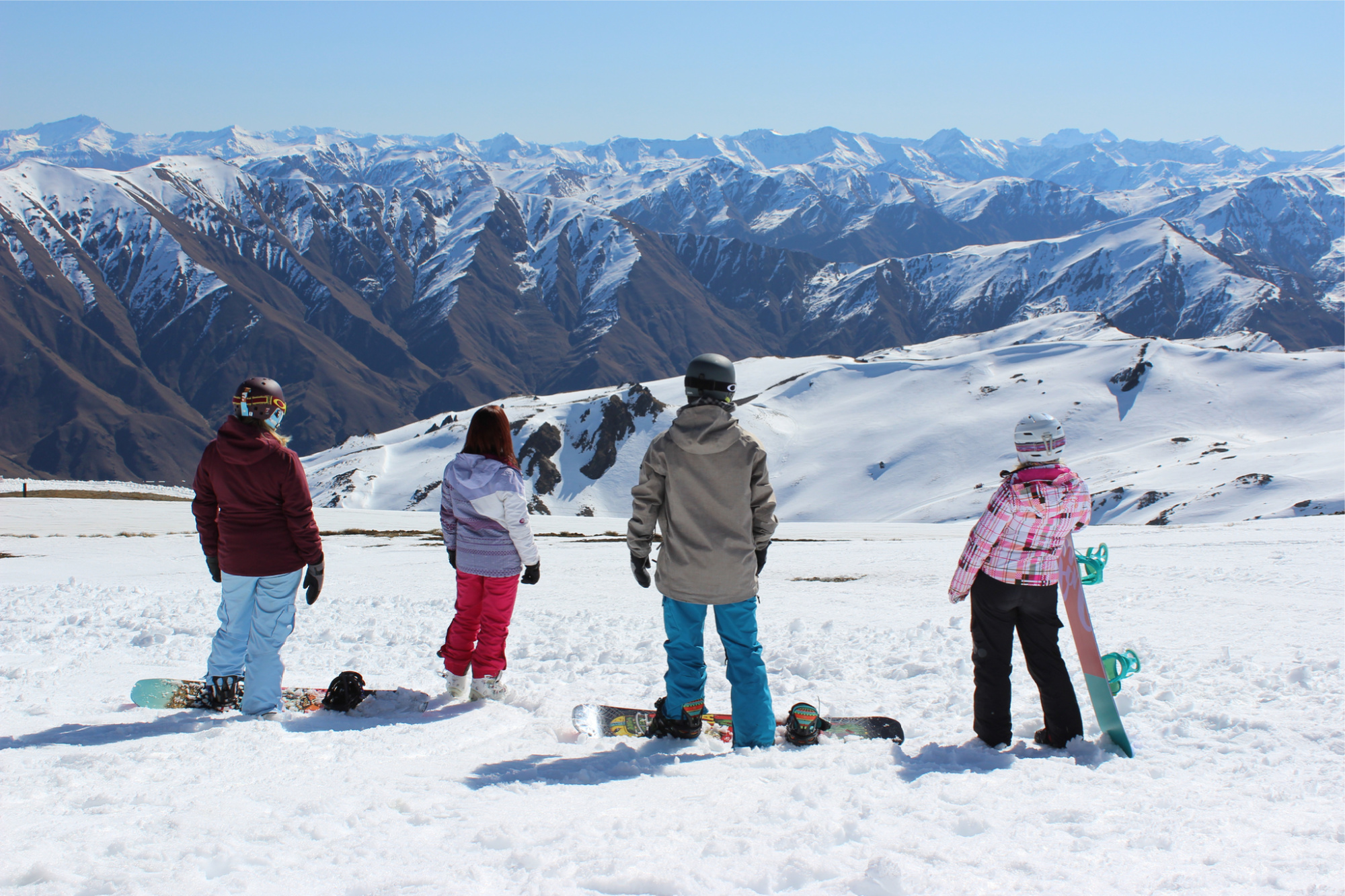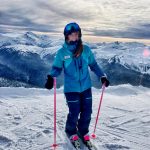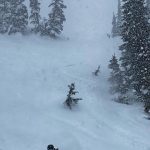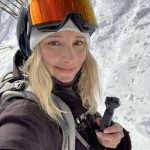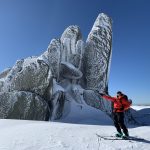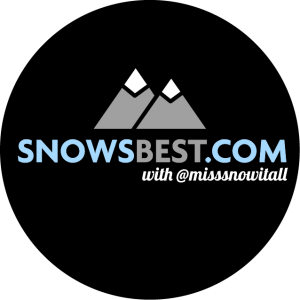I was in New York when COVID-19 really hit. It was overnight, as many others have also said. One day, Trump was on CNN promising that the virus would be non-existent by Easter; the next, every bar and every restaurant and every store was closed.
My dad sent me an email with just one line: You need to get out as soon as you can.
I called Qantas, got my flight changed. Bought one last salad from a store in New York and got myself to the airport. The city was out of hand sanitiser. No one had a mask on, or even knew where to buy one. The airport line-ups were huge, and the flight was packed; as we rose into the sky and away from the city, I vaguely wondered what would happen to my job.
For eight years, I have been a freelance writer and content creator focused on skiing and snowboarding. I have lived in five countries. Been to countless others. Never gone six months without moving house or being on a long haul flight. It’s been magical and privileged and varied, but it’s also required a freedom of movement that a global pandemic simply doesn’t allow for.
As I did my two-week quarantine at home, I watched as my seasonal friends made quick decisions to seal their fates and futures. Some cut their seasons short and flew home right away. Others waited anxiously, unable to get flights. Many decided to just wait it out, see what happens, hold off until we knew more.
Seasonal workers are birds. We migrate with the weather, seeking out the next challenge, the next opportunity, the next adventure. When the winds change, we change too. Many of us have always felt called towards something bigger, better, more meaningful; many of us are running from what didn’t serve us in our non-seasonaire lives; many of us got caught up in the fun, the energy, the freshness.
We take comfort in knowing that there is always the chance to start again. There is peace in the silence of a long-haul flight, potential in the anonymity behind settling yourself into a town where no one knows your name.
But our wings got clipped with COVID-19, our hearts put through a shredder. Many seasonaires lost their jobs. Most either had to say goodbye to their game plans as they knew them, or come to terms with not seeing home again. As with most other people, all-new lifestyles came into play; but when borders are closed, what happens when your entire life plan is based on being able to hop over a border with ease?
Here’s what three seasonaires have done or are doing now.
The waiting games
Ange and her partner, Tom, have been seasonaires for 10 years, ducking between Whistler and Australia. They originally met in Jindabyne and have been travelling together ever since, Tom working for Disabled Winter Sports, Ange as an examiner and trainer for APSI. The pandemic has been the first time they’ve stayed anywhere longer than six months.
“Seasons were so much fun, it’s such an intense, short period of time,” Ange says. “It got me hooked. Once you’re established, it’s just so easy; you work really hard but then you get to ski, then you have a bit of a rest and have a holiday before doing it all over again.”
They were in Whistler when the world changed.
It was a normal Saturday when the town started shut down. They’d had a full day of work and riding before getting a text message at 3.30pm that things were beginning to shift. Their flight was booked for May 1, and Ange immediately called the airline to see if they could shuffle the flight forward.
“The guy on the other end of the line said, ‘technically I’m meant to hang up on you if your flight isn’t in 72 hours,” Ange reveals. “I begged for him to talk to me, and he gave me a flight the day after. My partner and I just looked at each other and panicked.”
They had nine years of life in Canada to pack up, with the feeling they wouldn’t be getting back to the country to sort it out any time soon. There were no rental cars available and no buses running. They donated most things, tried to pack up the rest, and came home to a town in a season that they simply didn’t know.
“We had nothing to go to because we’ve never been in Jindabyne in summer, not instructing. We had no prospects,” Ange explains. “As an instructor, you’re definitely not an essential worker. And when you base your life and identity around being an instructor, and then you suddenly can’t do it, it’s hard to be useless and simply not necessary.”
The perk? They had so many friends in the same boat, all trying to make the most of it. Finding jobs in other fields, learning new skills. Jess has learned how to bike, is trying to work as a teacher, and is simply learning the game of waiting it all out.
“One of the good things that came out of this year – because everything was online – we had a lot more opportunity to connect although we were so disconnected,” she says.
“But it’s tough. Before COVID, I would’ve been like, yep I go here, then I go there. There was a plan and now there’s no plan.”
The pivots
Alex ‘Lex’ Parsons has been a snowboard instructor since 2015, changing it up between seasons in Japan, New Zealand and Australia. Fleeing Nozawa Onsen when the pandemic hit, she landed in Sydney and was quick to realise that her planned season in New Zealand was not likely to happen.
“I sent out 40 resumes for different jobs,” Lex says. “I ended up with an offer for a media job at tiny Mount Baw Baw, but we got so little snow that we only had one run for about a month and it was only 20 metres long. The crew worked so hard to make snow but conditions were just horrendous. It was so disappointing.”
Then COVID hit Victoria hard. The resort closed and everyone lost their jobs.
Lex went back to Sydney to quarantine yet again, before starting her job hunt again and landing a role with Thredbo as a backcountry guide.
There’s an element of panic and stress and trauma that comes with shifting plans – especially as borders open and slam shut again, cases crop up and fade away again, and careers that have been carefully built come crumbling down. But there’s another perspective to it that comes from being a seasonaire that Lex brings in.
“Despite it looking like we’re gypsies that just float around, we have to be quite analytical and good at dealing with change and upheaval. When you live a lifestyle that depends on conditions and the weather, things happen. Seasons start late. Chairlifts don’t open, or they suddenly open early. It all makes you really good at being agile, and that’s something you can bring to the table in a pandemic.”
Lex ended up staying in Thredbo all the way through to summer to remain as a hiking guide, a far cry from the snowboard instructing lifestyle she was so used to – but with it came a whole new perspective.
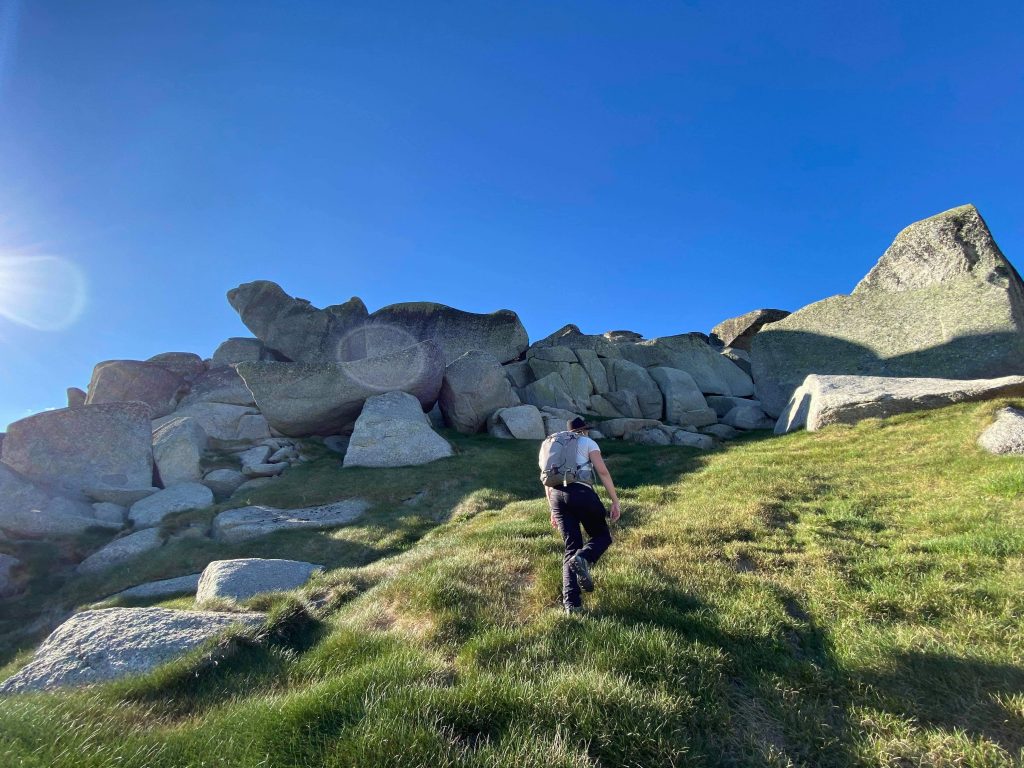
“It’s been great to learn more about the mountains, the wildflowers,” Lex says. “I feel more connected to the mountain than I ever have. Through previous seasons, I had fun in the mountains but I never understood the ancient history of how the mountain range developed. I never learned the Indigenous culture of the area. People have been going up for thousands of years doing marriages, ceremonies, and yet I never took the time to unpack the significance beyond sliding down a hill.”
With mountains still to love and snow still to enjoy, there’s one thing Lex does still really miss – the relationships formed when you’re with like-minded people.
“I just miss my ride crew. I miss the weird humans I’ve connected with from Canada, Scotland, England, who just get you and you have the best days of your life with the best turns of your life. you ride, you have lunch, you find your tribe. i didn’t know i needed that as much as I do. These days, it takes a lot longer to get to that same deep level where you can just be your authentic self.”
The runaways

Then there are the people who came home and very quickly realised that it wasn’t for them. Jackie is one of them, a Sunshine Coast local that fled seasons from Canada and Japan to end up back in Queensland. After six months of unemployment, she finally landed a job in Sydney.
“I work hard now, I make a lot of money compared to what I was used to, I tick a lot of boxes and I see my family a lot more, but I also don’t fulfil my personal side of exploration or self-development,” she tells me. “I miss the fluidity of seasons. The people you meet, the experience you gain. You have a small window of time to achieve a lot and have a good time so you put so much more into it.”
It’s a far cry from the mountains she used to be humbled by. The nights she would spend sitting with her camera, waiting to photograph the Aurora. The days she would spend searching for powder stashes in the trees. The après with the wild stories with new and old friends.
“On my days off in Canada and Japan, you’d be snowboarding, hiking, road tripping, exploring,” Jackie says. “On my days off here, I could technically do the same thing, but I’m caught up in working way too hard and I’m burned out on days off or I can’t align my social calendar with friends who are working equally as hard.”
As a result, she’s planning her move back to Canada. There are still ways to get back to places, after all; the flights are fewer and the visa situations are trickier, but if it well and truly feels like home, you simply have to go where your heart is called.
So many people, so many stories
Everyone has a COVID story, whether they’re a seasonaire or not. Some have ended better than others, but that’s what happens when a global pandemic smacks everyone in the face and pushes us onto different trajectories.
At this point, over a year in, most of us have been lucky enough to have find the connections and the silver linings that keep us getting up and out of bed in the morning – even if we lost our way for a bit there.
For me, I did stop travelling. I settled in, found a full-time job after awhile. Got a dog. Stopped seeing the snow, started surfing a lot more, did a yoga teacher training. And one day, I was scrolling through Instagram when a quote came up to sum it all up: “the art to survive is to believe you can always start over.”
Starting over. It’s the seasonaire specialty.
We’ve been starting over, time and time again, since we first packed our ski bags and turned up for our first season, not really sure how to expect. We’ve started over with each dodgy share house, featuring too many bunk beds and not enough bathrooms and that friend of a friend that’s always randomly asleep on a couch. We’ve started over with each new ski day, taking the conditions exactly as they are. We’ve started over with new friends, new jobs, new bosses. We’ve started over with each new destination, leaving pieces of our hearts behind.
And now we’ve started over again with so many brand new lives. Who would’ve thought it would be so handy?
Maybe we’re not birds after all. Maybe we’re chameleons, and we happen to be doing pretty well.

















